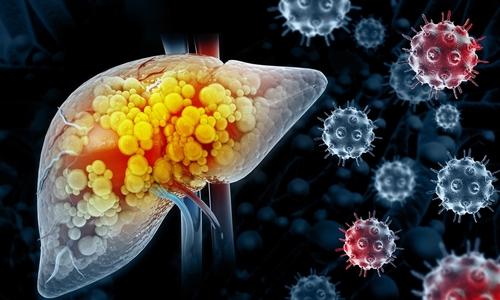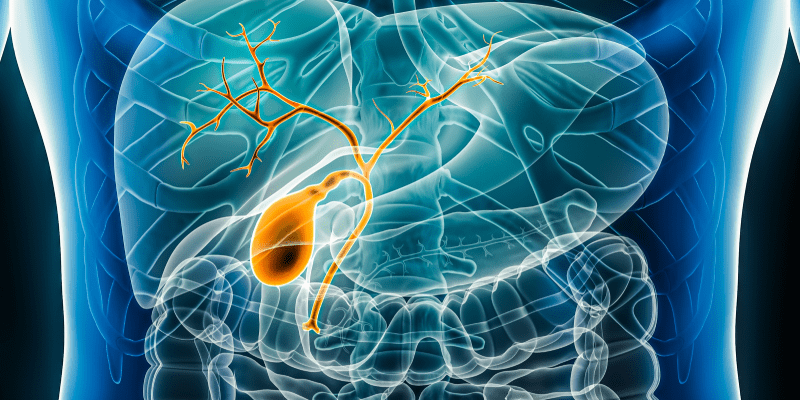
Results of a meta-analysis published in Hepatology International found that transarterial chemoembolization (TACE) in combination with tyrosine kinase inhibitors (TKIs) and immune checkpoint inhibitors (ICIs) led to improvements in response and survival compared with other TACE-based regimens for patients with hepatocellular carcinoma (HCC).
The goal of the meta-analysis and trial sequential analysis was to evaluate the efficacy and adverse events (AEs) associated with TACE treatments. The regimens evaluated were TACE plus TKIs (TACE + T) and TACE plus TKIs and ICIs (TACE + T + I). Patients included in the study had intermediate- or advanced-stage HCC according to the Barcelona Clinic Liver Cancer (BCLC) staging system. The primary outcomes were objective response rate (ORR), progression-free survival (PFS), overall survival (OS), and AEs. Five studies, comprising 425 patients, were included in the analysis.
The regimen of TACE + T + I led to a significantly improved ORR compared with TACE + T, with a risk ratio (RR) of 1.53 (95% CI, 1.27-1.85; P<.01). TACE + T + I was also associated with extended PFS and OS compared with TACE + T. The mean difference in median PFS between regimens was 4.51 months (95% CI, 2.16-6.87; P<.01), and the mean difference in median OS was 5.75 months (95% CI, 4.03-7.48; P<.01), both in favor of TACE + T + I.
Regarding AEs, rates of hypertension were higher among the patients treated with TACE + T + I compared with TACE + T, with an RR of 1.58 (95% CI, 1.05-2.40; P<.05). The trial sequential analysis found that additional cases of hypertension were needed to confirm the significance of this difference. There were no other significant differences in AEs between treatment groups.
In summary, the authors wrote, “TACE + T + I showed better effects on the ORR, PFS, and OS than TACE + T as a treatment for BCLC stages B and C HCC, without an obvious increase in the AEs.” The authors called for well-designed, large, randomized, controlled trials to confirm their findings.







 © 2025 Mashup Media, LLC, a Formedics Property. All Rights Reserved.
© 2025 Mashup Media, LLC, a Formedics Property. All Rights Reserved.